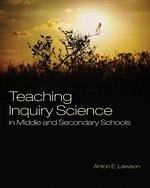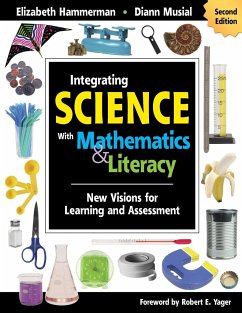Nicht lieferbar

Teaching Inquiry Science in Middle and Secondary Schools
Versandkostenfrei!
Nicht lieferbar
This textbook provides an introduction to inquiry-oriented secondary science teaching methods. This book stands out from the others by practicing what it preaches- it uses the inquiry approach to teach the inquiry approach. In addition, it provides tools teachers can use in their classrooms immediately, such as lesson planning procedures, classroom management techniques and effective evaluation procedures. The book is developed around six key questions: 1. What is science? 2. Why teach science? 3. What is the nature of scientific knowledge? 4. How do scientists construct knowledge? 5. How do p...
This textbook provides an introduction to inquiry-oriented secondary science teaching methods. This book stands out from the others by practicing what it preaches- it uses the inquiry approach to teach the inquiry approach. In addition, it provides tools teachers can use in their classrooms immediately, such as lesson planning procedures, classroom management techniques and effective evaluation procedures. The book is developed around six key questions: 1. What is science? 2. Why teach science? 3. What is the nature of scientific knowledge? 4. How do scientists construct knowledge? 5. How do people develop effective reasoning patterns? 6. What teaching methods best facilitate scientific knowledge acquisition (both conceptual knowledge construction and reasoning pattern development)?





